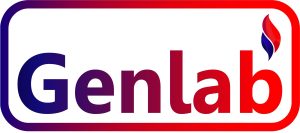Genlab

Genlab manufactures and sells a range of ovens for industrial and laboratory applications. Most of the manufacturing is carried out on-site, with the core activities centred on fabrication. The product range consists of ovens varying in size but with similar architecture. There is also a choice available to the customer between having a proprietary or an in-house designed control system fitted in addition to custom ovens that require additional R&D work.
Genlab is currently addressing numerous challenges regarding suppliers and key strategic decisions for the future of the company.
Challenge
Contact between Genlab and LJMU was established through a previous project, forming the basis for the collaboration within the Horizons project. Genlab had a very clear initial desire for direct knowledge transfer regarding a previously procured CAD system for creating models to support the generation of 3D images. However, during the initial meeting with Horizons, it became apparent that far more value and innovation could be introduced than originally envisaged.
The proposed increased use of CAD also highlighted potential opportunities to improve the control of the design data, the wider documentation control and quality assurance systems.
Solution
Desktop research was undertaken to find alternative finishing processes, but this was curtailed with the agreement of Genlab Ltd, as the focus of the assist turned more towards the potential within the CAD software and an improved document control system.
The CAD system, a currently underutilised asset, was covered in depth to unlock its full potential for innovation within the company. A transfer of knowledge regarding software capability and the additional processes engendered by the creation of a virtual 3D model, from analysis to automated production, was undertaken.
The opportunity was also taken to cover engineering drawing conventions and design document control, including how these underpin quality control and reduce risk to the company.
The most effective path for addressing document control was determined as being a formal review of processes, followed by a workshop to cover areas of application more organically. All outcomes were documented and forwarded to Genlab with the discussion process being sufficiently adaptable to allow input by Horizons into wider challenges being faced as they came to light. In particular, there is a key decision point regarding the company premises that is being approached, and LJMU has advised on standard business practices for assessing and quantifying the factors that will influence how the company proceeds.
Impact
Genlab Ltd now has a sufficient level of understanding of documentation control (and its benefits) to implement the processes and procedures suitable for them. A greater understanding of how CAD works and its potential gives a firm basis for putting together a strategy for implementation. The wider capability of the system has been demonstrated, allowing for a more comprehensive and cohesive aspiration to be developed for its use in unlocking various R and D processes.
Other aspects covered during the assist have acted as an introduction to industry standard methodologies that can substantially de-risk Genlab Ltd whether applied on a departmental or company level. Although difficult to review in detail, due to the wide ranging and organic nature of the discussions, this was deemed as of greatest value to the company.
Overall this should substantially improve the robustness of Genlab and inform decisions moving forward.
Genlab is now in a position where they have been equipped with the knowledge to progress key areas within the company. As it faces the need to make critical decisions this will not only inform the direction taken but also the process for decision making itself. In addition, the improved knowledge regarding documentation and document control gives Genlab a better ability to understand its products regarding value and quality. Futureproofing and overall risk management can now be undertaken as a continuous programme.
Click here for the downloadable case study.
